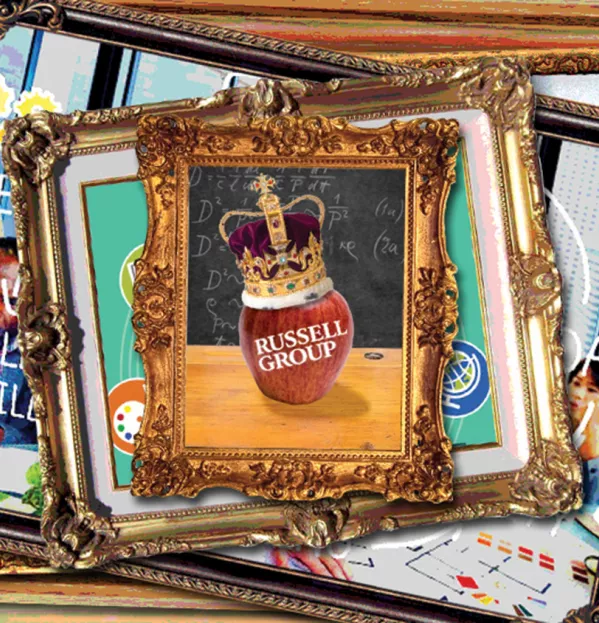“Groupthink” is a psychological phenomenon, in which an unthinking consensus blinds people to alternative viewpoints. When A-level results arrive and students make life-changing decisions about university places, Russell Groupthink is firmly in place.
Formed in 1994 by top universities, the Russell Group has established itself so deeply in the psyche of schools, colleges and policymakers that we refer to “the number of students who get into Russell Group universities” as a badge of quality.
Russell Groupthink is unashamedly elitist, selecting only the cleverest students. I don’t have a problem with that in itself: we need to educate the brightest, and that requires very good schools, colleges and universities.
Who the cleverest people are and what they should be studying is all dictated by the research agenda at the heart of Russell Groupthink. Traditional subjects - referred to as “facilitating subjects” - are more highly regarded. You will only get into their courses with maths, English literature, physics, biology, chemistry, geography, history or languages qualifications. Economics, law, psychology, business studies, computer science and design technology are popular with students, but, from a Russell Groupthink perspective, second-class.
Cognitive skills permeation
The focus on cognitive skills has its origins in the development of modern education. The school and university curriculum of the 19th century was based on traditional “liberal education”, which valued abstract thinking skills and classically influenced cultural knowledge far more highly than socio-economic knowledge and practical implementation skills. It has permeated our entire school system.
In the context of social mobility, it’s interesting to note Catherine Dilnot’s recent finding that “take-up of all facilitating subjects … is considerably higher in private schools than maintained schools, with 1.5 times the proportion of all students in private schools taking maths, physics, chemistry and geography, and over twice the proportion taking further maths and French.” Unsurprisingly, you are 10 times more likely to go to a Russell Group university if you are from the most affluent section of the population, compared with the poorest.
Russell Group universities are world-class in terms of theoretical research, but their agenda has dominated to the exclusion of other priorities. The parts of the education system that feed elite universities have been pampered and fattened; the rest of the system has been fed on leftovers and self-improvement nostrums. Until things change, Russell Groupthink will limit the prospects of many willing and able young people who are not motivated by cognitive learning.
Far too much effort is dedicated to pushing pupils into classrooms and libraries, and far too little resources are dedicated to interactive, practical, experiential, applied learning: the sort of learning that develops the skills most employers are crying out for.
Andy Forbes is principal of the College of Haringey, Enfield and North East London
